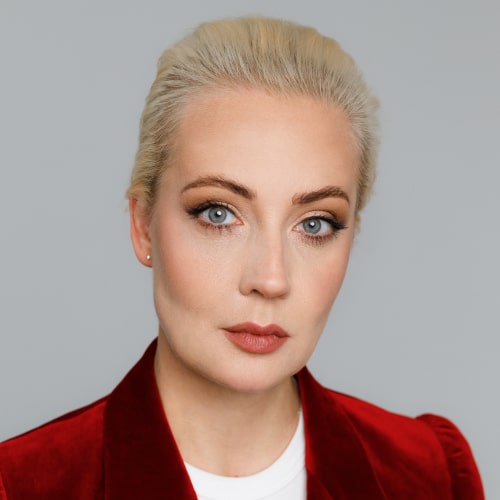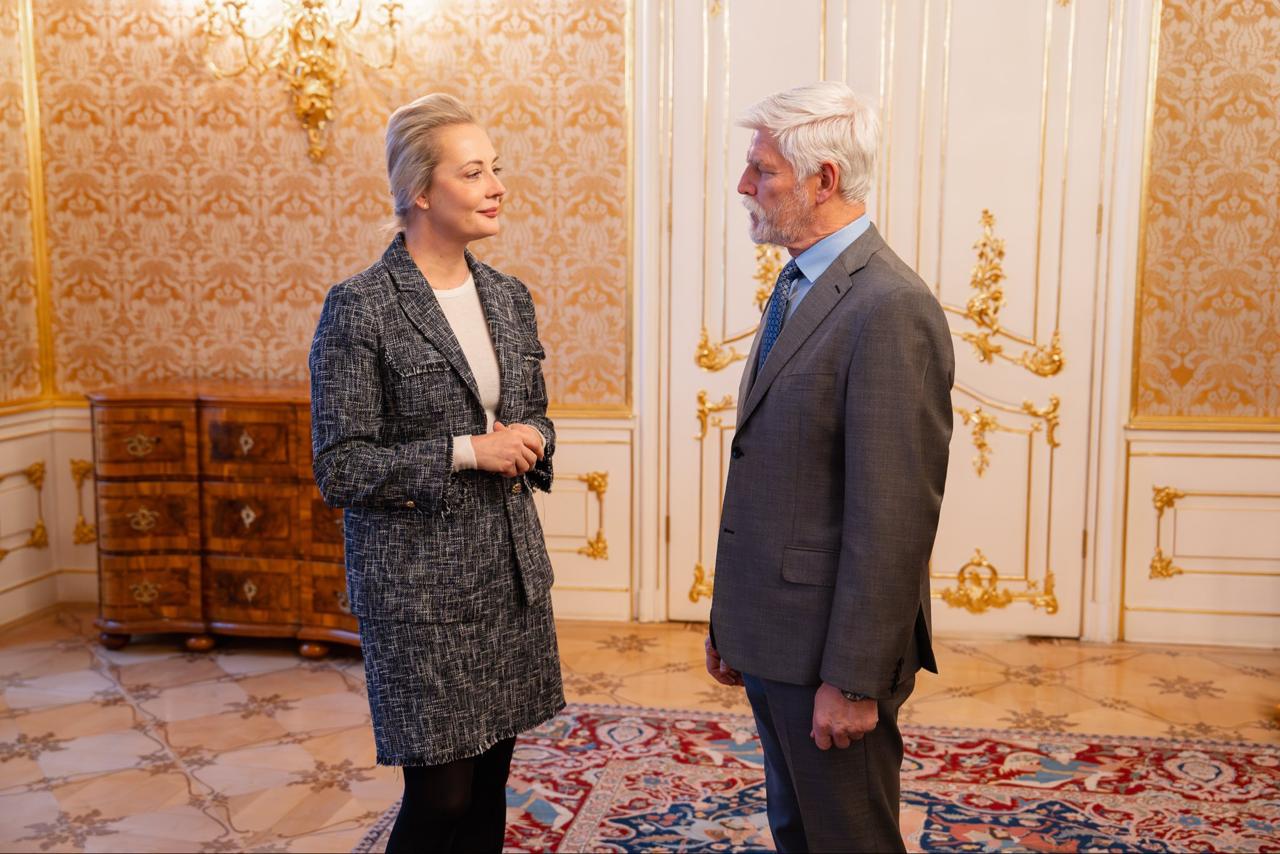News
“Return a Voice to Millions of Russians”: Speech at the Baltic Sea Parliamentary Conference
Yulia Navalnaya spoke at the opening of the Baltic Sea Parliamentary Conference, an annual event that discusses development and cooperation in the Baltic Sea region.
Dear President Stubb, Dear BSPC president Röblom, Dear participants of the Baltic Sea Parliamentary Conference, I’m deeply grateful for the invitation to speak at the opening of your conference. I accepted right away, because I see this invitation as both a political statement and a sign of understanding.
A sign that you still see Russia as an inseparable part of your community. That you recognize that dialogue and cooperation in the Baltic region are impossible without Russia. That you understand Putin is not Russia. That you understand his regime has no right to represent the true interests of our country or our people.
This is something I deeply believe in — and I fully share your approach. That is why I am here—as the representative of a different Russia. A Russia without Putin. A normal Russia. A Russia currently facing persecution and repression. A Russia that has practically been silenced. A Russia whose best sons and daughters have been killed, jailed, or forced into exile. But also a Russia that still holds on to hope—and to its dream.
That hope is very simple: That Russia can be a normal European country. A country that does not wage wars. A country that works with its neighbors for the common good. By speaking at international forums like yours, I want to return a voice to millions of Russians who share that hope.It is crucial that their voices are heard.And I thank you for allowing me to speak for them today.
It’s a very difficult time right now for all of Europe. It is also a very dark time for my country, Russia. The bloodiest, most brutal, and most dangerous regime in decades has usurped power. A dictator who ignores every norm of international law. Even worse—someone who sees zero value in cooperation or partnership.A man who recognizes only force and the law of the strong.
One fact truly struck me as I prepared for this speech: The Baltic Sea Parliamentary Conference was founded in 1991—and the very first meeting included a delegation from the Supreme Soviet of the USSR.Even the Soviet leaders understood the value of international dialogue and cooperation.
And not only in 1991, the year of great hopes for democratic change in Eastern Europe—it was true long before that too. Just three weeks ago in Helsinki, we marked an important anniversary: 50 years since the signing of the Helsinki Final Act.In the middle of the Cold War, the leaders of the Eastern bloc had the common sense to realise that without mutual respect and the adherence to clear rules, everyone would be worse off.
I say this without any nostalgia for the Soviet past—I feel none at all. I am simply stating a fact: what was obvious even to Brezhnev is for Putin nothing but empty words. Putin loves droning on for hours with his pseudo-historical lectures.He loves talking about international law and justice.But words don’t matter—only actions do. And all his actions say one thing: he couldn’t care less about laws or rules.
For many years, when we warned how dangerous Putin was for peace in Europe, nowhere did we find more support and understanding than in the Baltic countries. Sadly, both our voices and yours went unheard.The further from Russia, the more blasé people felt about Putin and his regime. So what if he rigs elections? So what if he jails dissenters? So what if he has imposed total censorship and propaganda? It won’t affect us. He won’t actually start a war.After all, there are laws, there are international rules.
But that mistake has cost us all a terribly high price.
Right now, we are in a Finnish town where everyone speaks Swedish. A town named by a Russian emperor after his wife, who was born in Darmstadt, whose native language was German. It is a perfect example of how deeply intertwined European history is—and how Russia, for centuries, has been an inseparable part of it.
Mariehamn—like many towns in Europe, especially in the Baltic region—has seen many rulers and changed hands many times. Based on history lectures, multiple sides could claim that this territory should be theirs. It is always easy to use history to justify aggression.
That is exactly why, after the horrors of the Second World War, the world found the wisdom to set down principles of peaceful coexistence and cooperation. The Helsinki Final Act became the cornerstone of that process. It was there that the principle of inviolable borders was established. No matter how each side understood historical justice, all participants of that conference agreed to reject forever the idea that territory could be acquired via force.
Sadly, that lasted only 39 years—until 2014, with the annexation of Crimea and the outbreak of war in Donbas.That was when Putin broke the world order.He was not punished.He was not held accountable.And then he went further.
The lessons from this are simple:
First—not a single word from Putin can be trusted. He respects no agreements.
Second—principles of law mean nothing unless someone is willing to defend them. When violations go unpunished, it only fuels the aggressor’s appetite.
Third—as long as Putin is in power, there will be no peace and no cooperation.
I want everyone to understand this. Too great a price has already been paid for these simple truths. And I know it better than anyone.
But I want to end on a hopeful note. Putin is not all of Russia. Even now, after years of propaganda and Orwellian brainwashing, most Russians want peace, cooperation, and good-neighborly relations with European countries. Millions in my country remain committed to partnership, peace, and mutual respect. The time will come when their representatives—elected in free, fair, and competitive democratic elections—will once again sit with you in this hall, at the same table.
I promise to do everything in my power to bring that day closer.And I wish your conference every success and productive discussions for the prosperity of the Baltic Sea region—for this is our shared home.

Yulia Navalnaya


